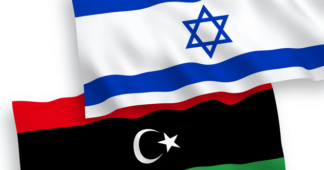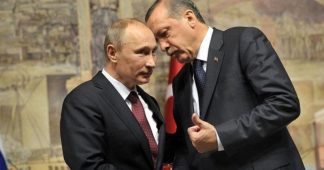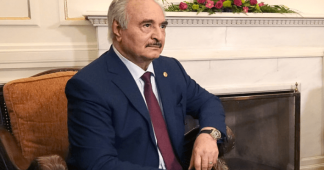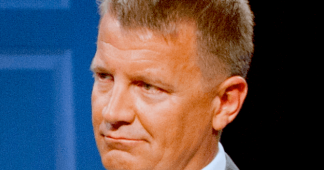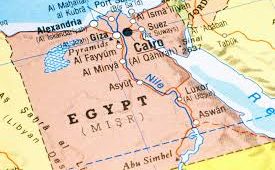The media is happy to report on the chaos there now; less so on what caused it in the first place.
February 28, 2020
A new report from the United Nations bluntly conveys the extent of the continuing chaos in Libya and the suffering it has caused. Yacoub El Hillo, the U.N. humanitarian coordinator for Libya, stated that the impact on civilians of the country’s nine‐year internecine war “is incalculable.” That horrible situation is the long‐term outcome of U.S. and NATO actions, and it is well past time that guilty officials are held accountable for their disastrous policies.
Libya has been an arena of strife ever since the United States and its NATO allies helped insurgents overthrow Moammar Gaddafi’s regime in 2011. But the U.N. report suggests that matters have grown noticeably worse over the past year. In the spring of 2019, the Benghazi‐based Libyan National Army (LNA), led by one‐time CIA asset Field Marshal Khalifa Haftar (sometimes spelled Hifter), launched a military offensive against the U.N.-recognized Government of National Accord (GNA), based in Tripoli. Haftar’s attack initially seemed likely to prevail, but it soon bogged down and a bloody stalemate ensued.
The Libya conflict has increasingly become a proxy war involving Middle Eastern powers and Russia. Haftar receives weapons, funds, and other backing from several countries, most notably Egypt and the United Arab Emirates. In addition to the diplomatic and financial support it gets from the U.N. and most Western governments, the GNA is obtaining ever‐stronger backing from Turkey. Earlier this month, Ankara significantly escalated its involvement when its parliament authorized the deployment of Turkish forces to Libya. Russian mercenaries are already fighting there on behalf of Haftar.
The stakes are higher than just a mundane struggle for political power. Libya sits atop Africa’s largest supply of oil and natural gas, worth tens of billions of dollars. Both the LNA and GNA have maneuvered to use that oil as a weapon against the opposing side.
U.S. policy seems muddled and ambivalent. Washington still recognizes the GNA as Libya’s “legitimate” government, but the Trump administration has sent mixed signals. After a telephone call between Trump and Haftar in April 2019, the U.S. seemed implicitly to back the LNA’s offensive against Tripoli. More recently, U.S. officials called on Haftar to halt the offensive. Yet when peace talks between the GNA and LNA broke down, the administration sent U.S. Ambassador to Libya Richard Norland to meet with Haftar even before contacting the Tripoli regime it officially recognizes.
There is little question that today’s Libya is a chaotic mess. Once again, however, Western news outlets are trying to portray a complex foreign conflict as a contest between good and evil. Journalists are intensifying their hostility towards Haftar, designating him as the villain. The Guardian warns that Libya’s ugly violence will continue so long as outside governments continue to back Haftar. (Apparently, external meddling on behalf of the GNA and its allied, often Islamist militias does not have a similar effect.) The New York Times appears to have seized the lead in the media campaign to discredit Haftar. In recent weeks, several prominent stories in the Times have highlighted his authoritarianism and brutality.
The one thing most members of the Western media establishment remain unwilling to do, however, is explain how the current chaos in Libya began—much less who was responsible for the tragedy. Such convenient amnesia continues a long‐standing pattern.
In late 2017, Western reporters belatedly discovered that a slave trade of captured black Africans had become a feature of “liberated” post‐Gaddafi Libya. A devastating account by Ben Norton, an analyst with Fairness and Accuracy in Reporting (FAIR), documented the mainstream media’s ongoing willingness to minimize American and NATO responsibility. In particular, Western journalists largely ignored that war’s connection to the resumption of slave trading. “The American and British media have awakened to the grim reality in Libya, where African refugees are for sale in open‐air slave markets,” Norton observed. “Yet a crucial detail in this scandal has been downplayed or even ignored in many corporate media reports: the role of the North Atlantic Treaty Organization in bringing slavery to the North African nation.”
NATO supported an array of rebel groups in Libya, Norton noted, “many of which were dominated by Islamist extremists and harbored violently racist views.” Yet journalists “have largely forgotten about the key role NATO played in destroying Libya’s government, destabilizing the country and empowering human traffickers.” Moreover, even the few news reports that acknowledge NATO’s complicity “do not go a step further and detail the well‐documented, violent racism of the NATO‐backed Libyan rebels who ushered in slavery after ethnically cleansing and committing brutal crimes against black Libyans.”
Norton singled out a 2017 CNN report for criticism. Despite the flashy multimedia features, he noted, “something was missing: The 1,000-word story made no mention of NATO, or the 2011 war that destroyed Libya’s government, or Muammar Qadhafi, or any kind of historical and political context whatsoever.” The same omission occurred in a series of subsequent CNN news stories about human trafficking in Libya, as it did in plenty of stories in other publications.
Recent news accounts about instability and repression in Libya show a similar desire to avoid discussing the destructive impact that NATO’s policies have had. The otherwise excellent, detailed article in the February 20, 2020 New York Times, which documented the oppression of Haftar’s forces, devoted only one sentence to NATO’s role: “[Libya] has been in turmoil since an Arab Spring revolt and NATO’s intervention toppled Colonel el‐Qaddafi nine years ago.” And that was in a nearly 2,000-word article.
When they participate in this conspiracy of silence, journalists shirk their duty as watchdogs alerting the public to government incompetence and misconduct. Whatever the Obama administration’s motives and goals in launching the military intervention that ousted Gaddafi, the results have been indisputably catastrophic. Yet Obama, Secretary of State Hillary Clinton, and key advisers such as Susan Rice and Samantha Power still refuse to acknowledge their blunders or apologize to the suffering Libyan people. It is time for the media to stop aiding and abetting such an evasion of responsibility. Stories about the current turmoil in Libya need to provide a clear picture of the shameful historical context.
We remind our readers that publication of articles on our site does not mean that we agree with what is written. Our policy is to publish anything which we consider of interest, so as to assist our readers in forming their opinions. Sometimes we even publish articles with which we totally disagree, since we believe it is important for our readers to be informed on as wide a spectrum of views as possible.
